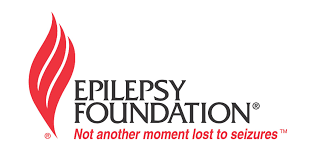Why can't RNY'ers take NSAIDS?
They irritate the lining of your pouch and can cause ulcers.
It is not the magnitude of our actions but the amount of love that is put into them that matters.
Mother Teresa
Mother Teresa
NSAIDS can cause ulcers in not just RNY patients but those with regular stomaches. Its not from sitting in the pouch or stomach but the meds themselves so getting around it by putting a patch on wouldnt work either. My RNY doc did say once in awhile taking one wouldnt hurt you but definitely dont make a habit of it. We absorb things quicker, medicine wise, I have noticed. Probably because the pills dont 'sit' in a stomach before getting dumped into the intestines. The standard dose of herbal perimenopause meds is 2 pills to help with the symptoms. 2 pills drop me into a depression, 1 pill deals with the symptoms. Its just like drinking alcohol. Once it hits my intestines, boom, I am feeling the effects because it is absorbed so quickly.
There's nothing basic about WLS. It is a major, life-changing surgery and you are wise to question everything. As far as NSAIDS go, like the others said, never again in any form (whi*****ludes patches, sprays, etc.). The drug is absorbed into the bloodstream and has a blood thinning effect which allows for the possibility of hemmoragh (sp?). The real danger lies in the portion of the closed off stomach that is left behind as it cannot be accessed by scope. You could bleed to death if you were to develop peptic ulcers in there. That's what my surgeon told me as I was a regular user of Aleve for many years due to hip/knee joint pain. I've read where some people are told by their surgeon taking one tablet with something like Mylanta is OK. Personally, I'm not risking a perforation (and my surgeon had one patient who thought a single dose wouldn't hurt him and he nearly died from it). Thankfully, with the loss of 60+ lbs so far I have a great deal less pain and take nothing for it now and I am doing fine. If you have arthritis or a similar condition please explore all surgical options if you need to take this type of medication. I have read that you can continue taking NSAIDS with the DS weight loss surgery because the stomach portion of the surgery is done differently; the DS basically has a sleeve instead of a pouch. If you post this question on the DS forum I'm sure they can explain it more fully.
Stomal ulcer is an acid-peptic ulcer that occurs on or near the anastomosis (connection) between the stomach pouch and the bowel, “the stoma". An ulcer may also rarely occur in the usual duodenal ulcer position. There is a higher risk of developing ulcers after bariatric surgery. Patients who use non-steroid anti-inflammatory drugs (NSAID) such as ibuprofen, Aleve®, etc., and smokers have a even higher incidence of ulcers. For this reason, all bariatric patients are instructed to avoid the use on all anti-inflammatory medications containing ibuprofen (i.e. Advil®, Nuprin®, Haltran®, Midol®, Motrin®, Aleve®, etc.) after surgery and for life. Ulcers can also lead to erosion of the Lap-band® into the stomach wall.
__________________
Wow, I have been having a pain in the middle left of my back. I called the NP and she recommended I take 4 teaspoons of Children's Ibuprofen 2 times a day for 2 days and call her back. I bought it but never took it as the pain has dulled out and been less frequent. I did think it was strange because I remembered thinking I could never take advil again after attending the pre-op class.
Yes, it is for life and below I will explain what can happen if you do. Some of what you've read from response are right on, others not entirely true. I'll explain by getting somewhat technical, but trying to keep it so it can be easily understood as to why.
To start with NSAIDs are a weak acid, which is not a problem with a normal stomach, being that the stomach is where food mixes with gastric acid (which is a mix of hydrochloric acid, potassium chloride and sodium chloride with a ph level of 1 to 2) so it's used to strong acids. We do not have a normal stomach anymore, as a normal stomach's most inner layer is a mucosa layer, which secrets mucus protecting the stomach from gastric acid and is much thicker towards the bottom of the stomach and thinner towards the top, which the top portion is what makes up our pouch. As well the top portion of the small intestine where it meets the stomach, the duodenum, as well has an inner mucosa layer that as well protects it from gastric acids that are mixed with half digested food, otherwise known as chyme. As you know, the duodenum is also a portion that is bypassed, being left attached to the old portion of our stomach and attached down lower to be mixed with food farther down in the small intestines. In the duodenum of a normal person, chyme is mixed with alkaline bile from the gall bladder & liver and sodium bicarbonate from the pancreas, thus neutralizing the chyme so that in can pass through the rest of the small intestines which do not have a mucus coating to protect them from acids. With our pouches we have no stomach acid like in a normal stomach, our food does not meet with the digestive enzymes and stomach acid until farther down in the small intestines, thus leaving our pouch, stoma and small intestines open to irritation from highly acidic foods and medicines until they reach that portion to be mixed with the digestive enzymes that would neutralize them.
So with that understanding, our pouches would have a problem that could eventually lead to an ulcer by taking NSAIDs that are a weak acid, other things that we've all been told to avoid that are also acidic and can irritate our pouches if consumed in large amounts over time are carbonated beverages (ph of about 2.5) and beer (ph of about 4.2) and even smoking and even lead to ulcers.
From everything I've read, heard and been told by my surgeon and his team at Vanderbilt University is that NSAIDs in other forms, such as intravenously and patches and such are fine, since they are not passing through the stomach, as long as you don't already have a condition that would require you to stay away from medicines that can thin the blood (such as asprin - also an NSAID and other NSAIDs).
To start with NSAIDs are a weak acid, which is not a problem with a normal stomach, being that the stomach is where food mixes with gastric acid (which is a mix of hydrochloric acid, potassium chloride and sodium chloride with a ph level of 1 to 2) so it's used to strong acids. We do not have a normal stomach anymore, as a normal stomach's most inner layer is a mucosa layer, which secrets mucus protecting the stomach from gastric acid and is much thicker towards the bottom of the stomach and thinner towards the top, which the top portion is what makes up our pouch. As well the top portion of the small intestine where it meets the stomach, the duodenum, as well has an inner mucosa layer that as well protects it from gastric acids that are mixed with half digested food, otherwise known as chyme. As you know, the duodenum is also a portion that is bypassed, being left attached to the old portion of our stomach and attached down lower to be mixed with food farther down in the small intestines. In the duodenum of a normal person, chyme is mixed with alkaline bile from the gall bladder & liver and sodium bicarbonate from the pancreas, thus neutralizing the chyme so that in can pass through the rest of the small intestines which do not have a mucus coating to protect them from acids. With our pouches we have no stomach acid like in a normal stomach, our food does not meet with the digestive enzymes and stomach acid until farther down in the small intestines, thus leaving our pouch, stoma and small intestines open to irritation from highly acidic foods and medicines until they reach that portion to be mixed with the digestive enzymes that would neutralize them.
So with that understanding, our pouches would have a problem that could eventually lead to an ulcer by taking NSAIDs that are a weak acid, other things that we've all been told to avoid that are also acidic and can irritate our pouches if consumed in large amounts over time are carbonated beverages (ph of about 2.5) and beer (ph of about 4.2) and even smoking and even lead to ulcers.
From everything I've read, heard and been told by my surgeon and his team at Vanderbilt University is that NSAIDs in other forms, such as intravenously and patches and such are fine, since they are not passing through the stomach, as long as you don't already have a condition that would require you to stay away from medicines that can thin the blood (such as asprin - also an NSAID and other NSAIDs).
Kenny - Facebook or view my blog — krcoffman.blogspot.com
HW 340/SW 297/CW 170/GW 190 — Start of Program Weight 315

HW 340/SW 297/CW 170/GW 190 — Start of Program Weight 315

NSAIDS arent just bad for people who have had RNY but for anyone. I was in the hospital in Iraq for GI bleeding caused by oral antibiotics and the soldier in the ICU bed beside me was in for GI bleeding caused by ADVIL.
Keep in mind that perscription migraine medications and perscription arthritis medications also have NSAIDS in them too.
I have migraines for over 16 yrs now and since my RNY surgery I have been limitied to tylenol and when I absolutly cannot take it anymore, which isnt very often........I have a VERY high pain tolerance, I end up in the ER.
Keep in mind that perscription migraine medications and perscription arthritis medications also have NSAIDS in them too.
I have migraines for over 16 yrs now and since my RNY surgery I have been limitied to tylenol and when I absolutly cannot take it anymore, which isnt very often........I have a VERY high pain tolerance, I end up in the ER.


















